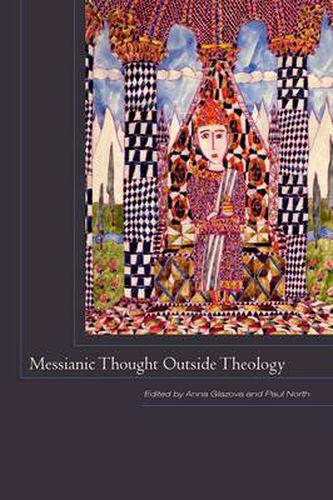Readings Newsletter
Become a Readings Member to make your shopping experience even easier.
Sign in or sign up for free!
You’re not far away from qualifying for FREE standard shipping within Australia
You’ve qualified for FREE standard shipping within Australia
The cart is loading…






Why did a secularized concept of messianicity seem so crucial in the twentieth century? Are messianic structures intelligible outside the theological systems in which they were invented? This book seeks to situate the ethical, ontological, and literary adoptions of messianism within the broader contours of messianic thought.
The gesture by Benjamin, Rosenzweig, and others of detaching messianism from the person of the messiah, understanding it instead as a redemptive potential inherent in all human history, is one facet of a broad move in political theory, philosophy, linguistics, and historiography to redeem secular thinking through theological figures.
Yet already within religious discourse the messiah figure is paradoxical. With the invocation of a future arrival to come, history is opened, yet the previous assumption of an end threatens to shut it off from whatever unexpected might come. The coming arrival, so certain, so complete, will have already come in an anteriority that seems to cancel the future and close down historical life before it starts.
$9.00 standard shipping within Australia
FREE standard shipping within Australia for orders over $100.00
Express & International shipping calculated at checkout
Stock availability can be subject to change without notice. We recommend calling the shop or contacting our online team to check availability of low stock items. Please see our Shopping Online page for more details.
Why did a secularized concept of messianicity seem so crucial in the twentieth century? Are messianic structures intelligible outside the theological systems in which they were invented? This book seeks to situate the ethical, ontological, and literary adoptions of messianism within the broader contours of messianic thought.
The gesture by Benjamin, Rosenzweig, and others of detaching messianism from the person of the messiah, understanding it instead as a redemptive potential inherent in all human history, is one facet of a broad move in political theory, philosophy, linguistics, and historiography to redeem secular thinking through theological figures.
Yet already within religious discourse the messiah figure is paradoxical. With the invocation of a future arrival to come, history is opened, yet the previous assumption of an end threatens to shut it off from whatever unexpected might come. The coming arrival, so certain, so complete, will have already come in an anteriority that seems to cancel the future and close down historical life before it starts.